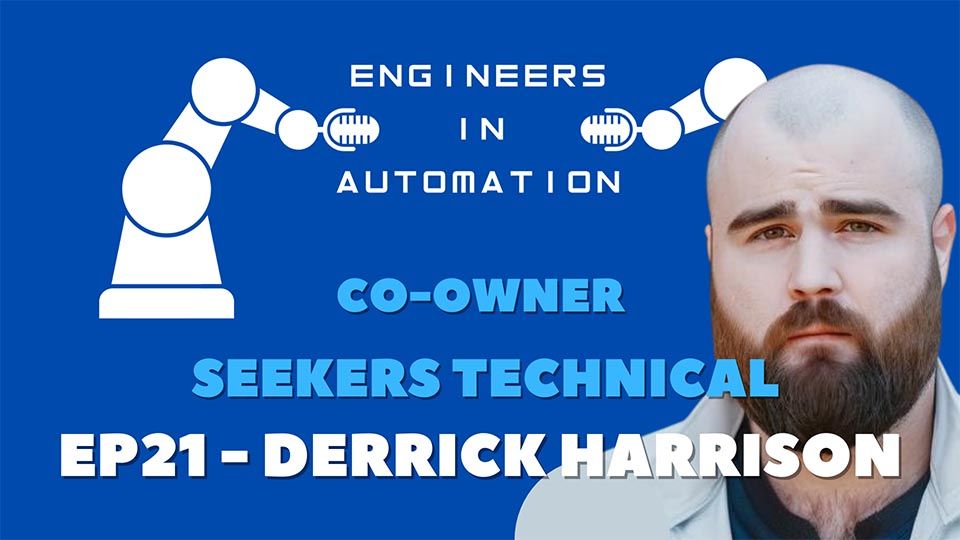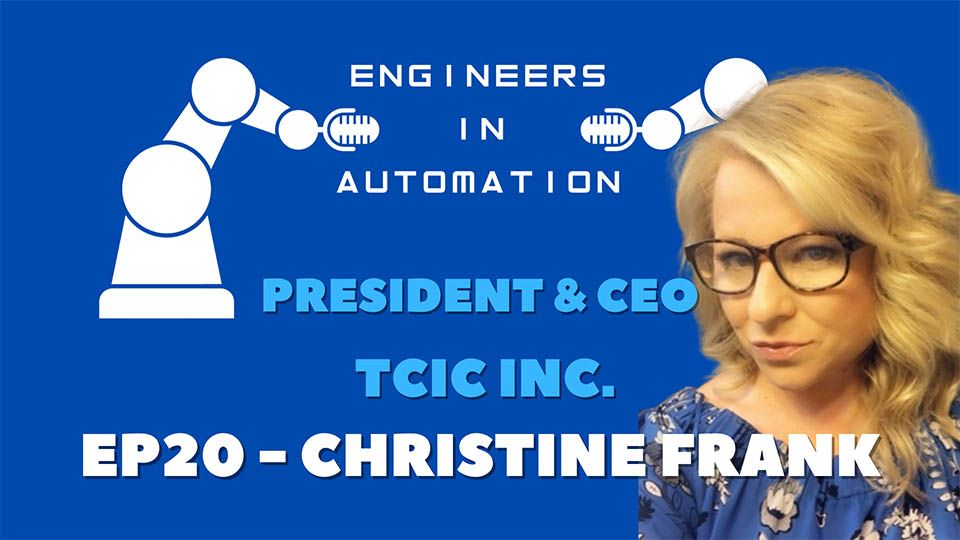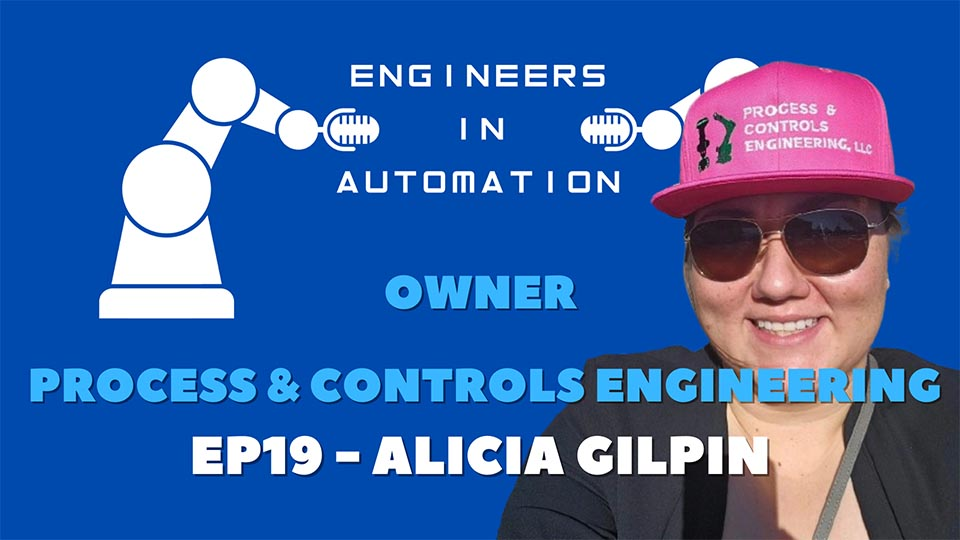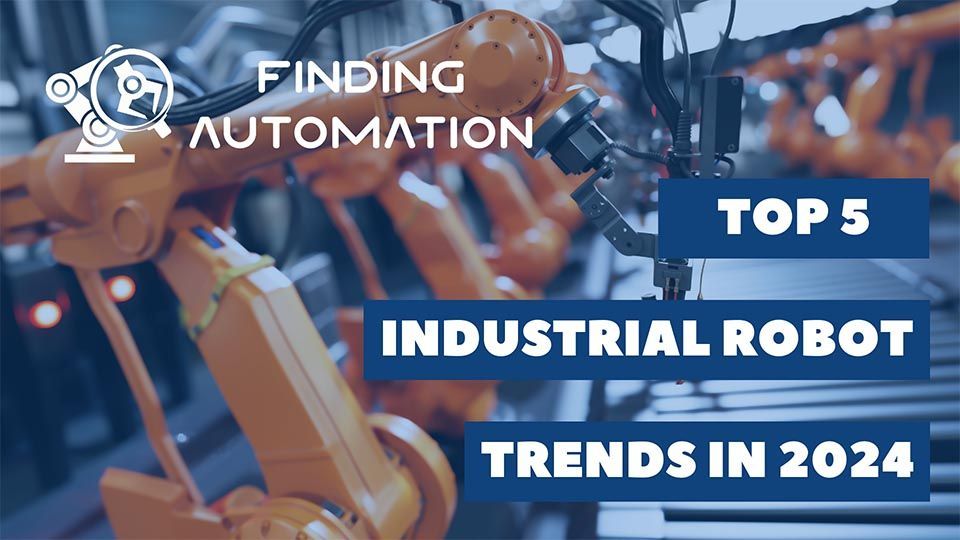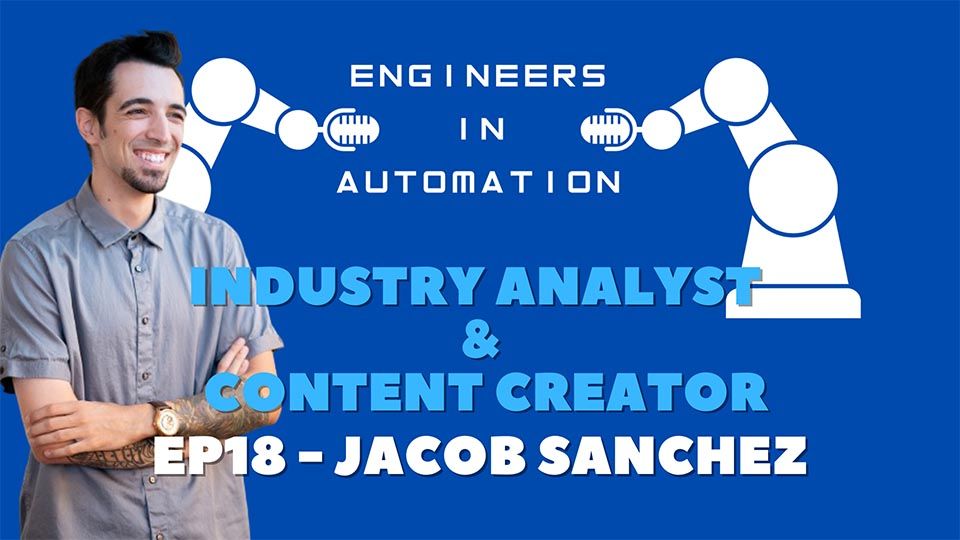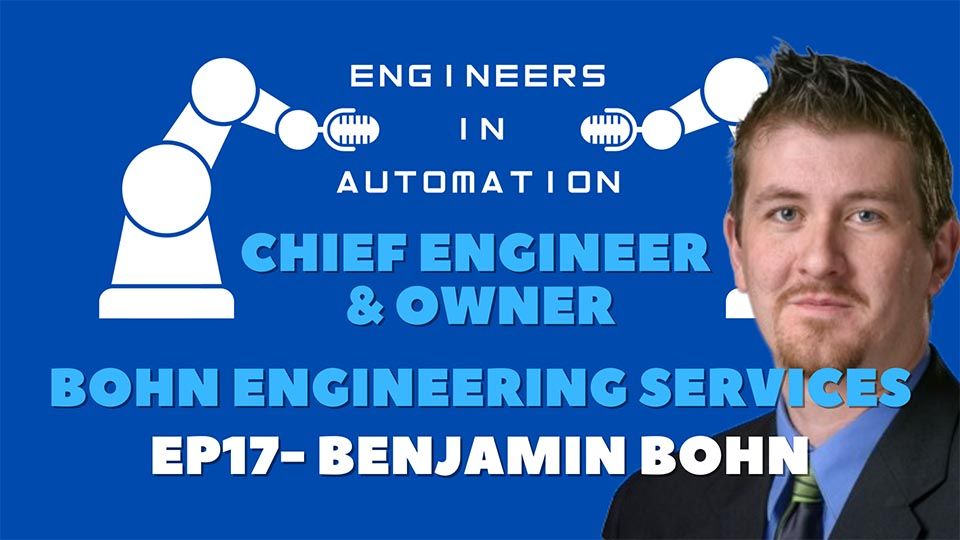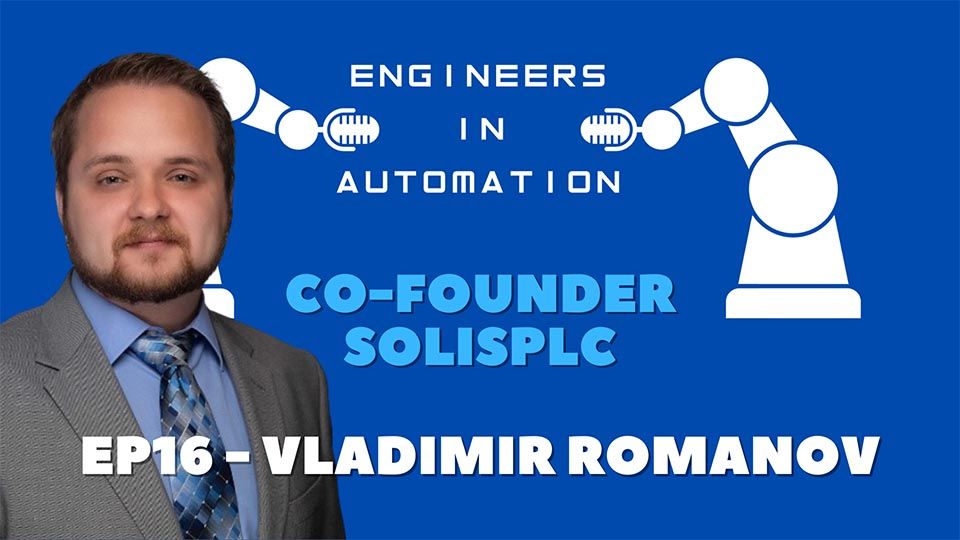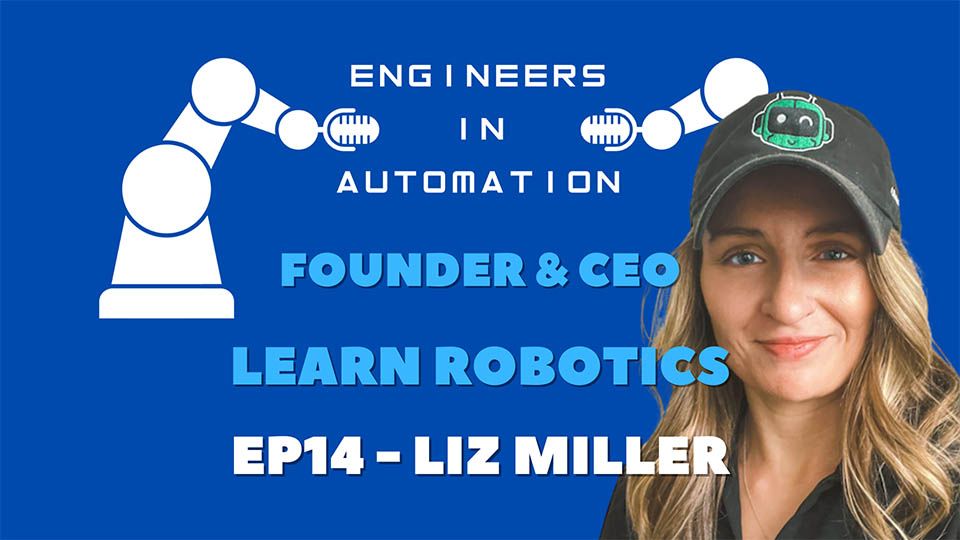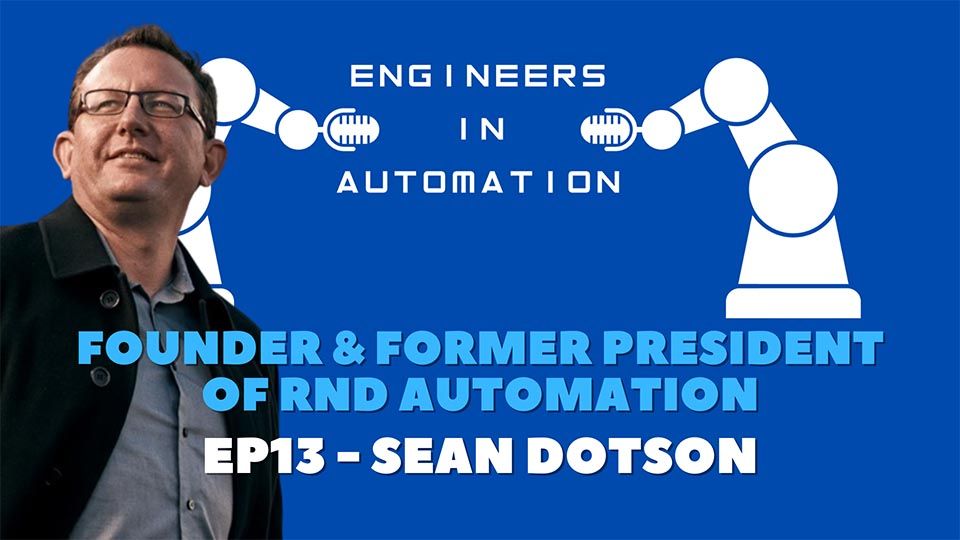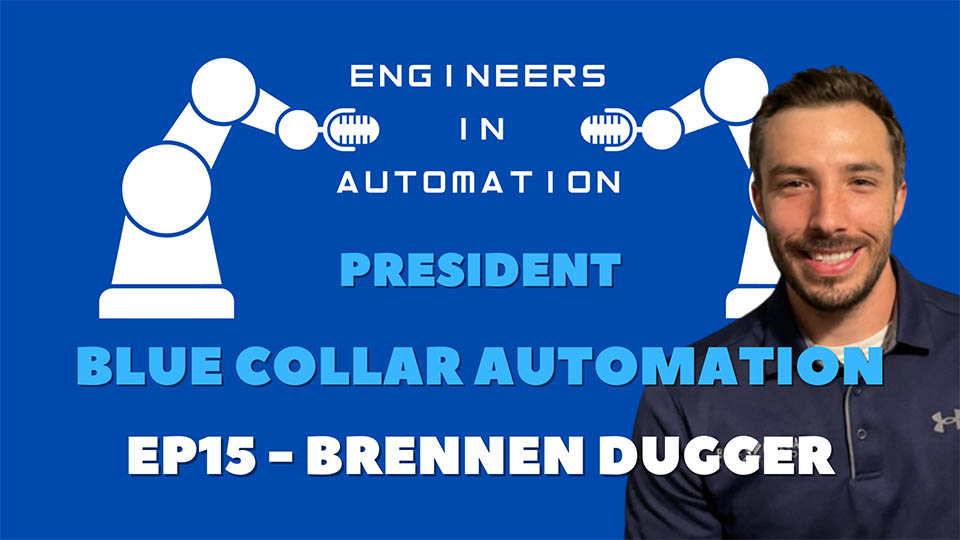Keegan Dillon – Host (KD): Hi, my name is Keegan, I'm the founder of JOINER Services, and this is
Engineers in Automation. On today's episode, I'm going talk with James Truman. He's the founder of Advanced Robotic Solutions. His company specializes in contract robot programming, as well as the founder of Automation Trainers. They specialize in training people to become robot programmers. Now, let's go talk automation.
KD: Welcome to the show, everybody. We're really excited to have you today. I've got James Truman with us today. He is the founder of Advanced Robotic Solutions and Automation Trainers. James, welcome.
James Truman – Guest (JT):
Thanks for having me on the show. Appreciate it.
KD:
Yeah, I appreciate it. First off, can you tell us a little bit of background about yourself and a little bit about your companies?
JT:
Sure. So, I'm the owner of Advanced Robotic Solutions (ARS) and Automation Trainers. On the ARS side, we are a full-service systems integrator for many of the automotive and automation companies. And on the Automation Trainers side of things. We're a full training facility for robot programming and controls engineering on multiple robot and PLC platforms.
KD:
Wow. Wow. Sounds like you got a full plate, then.
JT:
Yep, absolutely. We do.
KD:
Yeah. So how did you end up then getting into automation, into this role?
JT:
So, I got my start from a buddy who worked at a contract house in the metro Detroit area. I started out as a robot programmer, and, you know, began perfecting my craft project by project until the point that I was able to start, you know, my own company.
KD:
In what year was that? That you ended up starting on your own?
JT:
Around 2015.
KD:
Okay, great. And then, with that, how many employees do you currently have?
JT:
Give or take between office, instructing, and recruiting. We do with guys in the field between controls engineers and robot programming. We have over 10.
KD:
Oh, wow. Good. Congrats. And then how about on the training side? How's that going?
JT:
Oh, good. You know, one of the biggest hurdles that we had was procuring more robots, and luckily, we're able to overcome that. But the training inside of it has been great. And it's definitely something that, you know, I think the industry is moving towards and it needs.
KD:
Yeah, absolutely. I can't agree more there. Are there certain types of robots that you guys specialize in? At the training facility?
JT:
Yep. So right now, we have ABB and FANUC. And we have more Fanuc coming. We have KUKA, Kawasaki, Motoman, and Universal on the way as well. So, we're trying to do as many robot platforms as we possibly can.
KD:
Wow. Wow, that would be great. I, you know, don't know if any one training center is doing that many varieties. So that would be very unique if you could do that.
JT:
Absolutely. To my knowledge not right now, but I definitely think that it's a good move.
KD:
Yeah, yeah, no, absolutely. And then, on the ARS side, let's talk a little bit more about that. You know, what, you know, with your background coming up in the industry, you know, what kind of projects are these guys working on now for you?
JT:
We usually do a lot of everything. You know, we do preventative maintenance, we do robot programming from scratch, for MIG welding, spot welding, material handling, sealer and adhesive, laser welding. I mean, whatever our customer asks us for, we're going to do it.
KD:
Are you heavy automotive, then?
JT:
Yup, heavy automotive. Automotive would be our bread and butter. And we've been slowly getting into aerospace, defense, food and beverage, and pharmaceutical.
KD:
Very cool. And then I, one of the things I wanted to ask was, you know, what kind of makes ARS different than some of your competitors.
JT:
I would say the biggest thing would be, how we treat our guys and the type of people that we're bringing on. You know, we heavily vet a lot of the people that work at ARS, and you know, we have a family here, you know, we always make sure that everybody is on the right track, and we're able to give them training if they don't need it. And we offer many, you know, things that other companies don't and, you know, I pride ourselves on that.
KD:
Yeah, good. Good. So then, you know, you've been around for quite some time here and run your own business. What are some things that you really, obviously enjoy about this industry?
JT:
I enjoy that. It's always changing. Not there's not one day that's the same. There's new technology all the time. New people, new customers, and I love to see how its evolving, you know, year by year?
KD:
And what are some of those new technologies that that you really like, I know, you're pretty active on LinkedIn and post a lot of cool stuff that I always see. What are some of those things that really pique your interest?
JT:
I would say the coolest thing would be, how they're making it towards the rehabilitation of like patients and pharmaceutical, you know, like surgeries, and anything that can be done to, you know, catapult pushing, you know, that industry forward, you know, what I mean, advancements in surgery technologies, and maybe pill capping or aid all types of things.
KD:
Yeah. Are there any unique applications that, you know, you've worked on that you can talk about? Rather than it's you or any, anyone of your staff members?
JT:
I would say, you know, working on the Hummer EV was really cool this year. And, you know, we've done a lot of battery applications for them. So, I think that would be, you know, the coolest thing so far is, you know, the EV push, and the battery applications.
KD:
And then how was your, I guess, how was your outlook, then looking here for, you know, how that go through? 22? And then now for 23? Are you, you know, there's a lot of been a lot of bad news, kind of, in the media about, you know, the economy, things like that? How are things have been going for you in the automation industry?
JT:
Luckily, things have been steady. I think by 2023, things are going to be getting a lot better. You know, we had microchip shortages, we had some hard supply shortages. And I think, you know, as that, you know, tends to decrease, that business will increase a lot more. Yeah.
KD:
Yeah, that's a good point. Are you seeing any your, you know, demand for certain things, more or less because of that? You know, are you seeing, you know, certain needs from customers?
JT:
Um, to a degree, yes. I mean, we're all, you know, you know, them being the customer, you know, we have to fall in line with what they're telling us, but for the most part, it's been steady. I wouldn't say demand has been as high as it's always been, I think manpower is a big situation. That’s always happened. But I think that'll continue around the same, you know, situation, it's been.
KD:
Yeah, we're almost to the new year here. You’re my last interview of the season. You know, how is your outlook for 2023? Looking, you kind of touched on it there for a second is there anything big in the pipeline you're seeing is, you know, any, any big projects that you're looking forward to?
JT:
Um, you know, we do a lot of work with FANUC. And they have a lot of large projects coming up. So, I'm very anxious to see you know how that progresses. But, you know, from what I hear, 2023 is going to be a big year.
KD:
That's, that's what I like to hear to them. What about any anything that you know, as a business owner, as a programmer yourself? Is there anything that you see in the industry that you know you struggle with or that you dislike?
JT:
Um, I would say, you know, the biggest thing, which with automation trainers were trying to solve is the amount of training, and not just, you know, knowing how to do it, but why you're doing it. Is the biggest thing, you know, a lot of people learn from other people in the field. And there really needs to be stricter training, and, you know, broken down so that way, a lot of these guys in the field or women can know why they're doing and not just how, and you know, get proper training, and be able to get people in the facilities, create more manpower, create less of a demand for manpower, you know, from having them highly successful and highly trained.
KD:
Yeah, yeah, that's a great point. Where are you finding some of these individuals to train? Are you looking at the younger ranks? Are you looking for people trying to move to get out of their current roles? Who are you looking at there to try to get some automation training?
JT:
Um, so pretty much anybody can. We're set up with the state of Michigan so people can, you know, get grants and other types of supplemental money to take our classes. But, you know, we work with high schools, like I went to Dakota high school, you know, we've been working with them to get students into, I guess you would consider this a skilled trade, right. So it'd be good to get them into some type of stem, which is science, technology and engineering and manufacturing, and get them into her career, not just a job and give them the proper training. But you know, we're working with so many different sources to get people of all kinds and ages.
KD:
Oh, wow, that sounds great. And definitely, there's a high demand, especially here locally, it's, good to hear. I want to ask, you know, you've been around for some time now, what are some mistakes that you've seen out in this industry that you think people may be making or something maybe that you've done yourself?
JT:
Um, I would say, you know, as a company, we haven't had a lot of mistakes. Me personally, I mean, once in a while, you'll, you'll crash a robot, or you'll do certain things like that as a robot programmer, but for the most part, there isn't anything, you know, crazy that they could really happen. And luckily, I haven't had any of those situations happen to where it's been, like, a catastrophic failure.
KD:
Yeah, I've seen a few of those. So, you know, with this training center that that you're building here, you know, it's giving a lot of opportunities, I think, for people to go and learn and expand their learning whether they're, you know, new programmers, current programmers in the field, or just somebody just trying to break in the industry themselves. You know, I guess, tell us a little bit about, you know, how you feel about kind of changing the landscape and bringing more people into the industry. You know, I think it's something that's really important.
JT:
Um, I would say, just by doing their training classes our way, and what I mean by that is, we offer accelerated classes, and we want to get people trained fast, and in the field, without any hiccups. And the way that we write our curriculums and the way that we train and teach is different from any other company that does it right now. And, you know, that's one thing that I wanted, when we started that entity, is to make sure that we're pumping out high-quality training, no matter what.
KD:
And then, how long is your training classes? You know, how long do those last?
JT:
It varies. You know, we do robot programming on multiple platforms for robots. We do Siemens and Allen Bradley for the PLC side. But for the most part, you're looking at, oh, you know, about five days, per course.
KD:
Okay. Yeah, that's not too bad. It's a one-week power session, right?
JT:
Yep. You have eight hours a day.
KD:
Yeah. And that's on-site. And where are you guys located?
JT:
Yep, that's on-site. We're located in Shelby Township at 25 & Mound.
KD:
Okay. So just a little bit North of myself. So, I do want to ask, though, you know, what kind of inspired you to get into this industry? How did you break into it yourself?
JT:
Um, well, you know, a friend of mine got me into the industry, like I was telling you, and I kind of like absorbed it like a sponge. You know, I've always been into technology, and working with robots to me was just awesome. I thought it was cool. It didn't really seem like a job. To me, it really, it really felt like, you know, I was playing around and in learning as much as I could. So, you know, I've always been under the impression that if, you know, if it doesn't feel like work to you, you're gonna love what you do.
KD:
Yeah, and I feel the same. Anything automation related, I'm in with a smile on my face. It's a great point. I guess another thing I just wanted to ask is if there is any leadership advice that you could give. I mean, a guy coming from, you know, breaks into the industry as a programmer, now, you got two businesses, you know, how to, you know, how would you do it any advice on leadership and how to get there, because you obviously have some.
JT:
It sounds cliche, you know, because everybody says that, but you can't be afraid to make the jump and try something new. You know, to better yourself, you know, everything is possible in life and achievable. And, you know, Rome wasn't built in a day. So, you just have to trust the process and set your mind to whatever you want to do.
KD:
Yep. Yeah, that's a good point. Do you have any advice for, you know, maybe people thinking about, you know, going in the industry and like working for a contract company, like yourself, anything, any tips for them?
JT:
I would say, to invest in yourself, I would get as much training and certificates as possible, and absorb all the information, you know, as you can and use it to your benefit.
KD:
Yeah, good point. Good point. And then, you know, one of the last things I always like to ask people is, where can people find you? How can they get ahold of you? How can they contact you?
JT:
So yeah, our website, you know, is right there air as robots.com My phone number is on the websites pretty much everywhere. I have been posted on LinkedIn, you know, I plugged in all my information that I can so that way people can contact me directly and get in touch with me.
KD:
All right, great. Right, and I'll leave that in the description below, too, so people can go directly to your LinkedIn account. I just wanted to thank everybody today make sure you give us a like, comment, and share, and don't forget to join us next time here
on
Engineers in Automation. Thanks!
